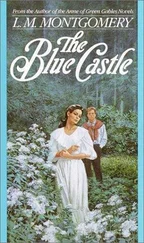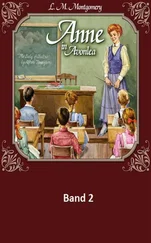Lucy Montgomery - Rilla of Ingleside
Здесь есть возможность читать онлайн «Lucy Montgomery - Rilla of Ingleside» весь текст электронной книги совершенно бесплатно (целиком полную версию без сокращений). В некоторых случаях можно слушать аудио, скачать через торрент в формате fb2 и присутствует краткое содержание. Жанр: Детская проза, на английском языке. Описание произведения, (предисловие) а так же отзывы посетителей доступны на портале библиотеки ЛибКат.
- Название:Rilla of Ingleside
- Автор:
- Жанр:
- Год:неизвестен
- ISBN:нет данных
- Рейтинг книги:4 / 5. Голосов: 1
-
Избранное:Добавить в избранное
- Отзывы:
-
Ваша оценка:
- 80
- 1
- 2
- 3
- 4
- 5
Rilla of Ingleside: краткое содержание, описание и аннотация
Предлагаем к чтению аннотацию, описание, краткое содержание или предисловие (зависит от того, что написал сам автор книги «Rilla of Ingleside»). Если вы не нашли необходимую информацию о книге — напишите в комментариях, мы постараемся отыскать её.
Rilla of Ingleside — читать онлайн бесплатно полную книгу (весь текст) целиком
Ниже представлен текст книги, разбитый по страницам. Система сохранения места последней прочитанной страницы, позволяет с удобством читать онлайн бесплатно книгу «Rilla of Ingleside», без необходимости каждый раз заново искать на чём Вы остановились. Поставьте закладку, и сможете в любой момент перейти на страницу, на которой закончили чтение.
Интервал:
Закладка:
"Lose she will," said Mr. Meredith: emphatically. "The Idea cannot be conquered. France is certainly very wonderful. It seems to me that in her I see the white form of civilization making a determined stand against the black powers of barbarism. I think our whole world realizes this and that is why we all await the issue so breathlessly. It isn't merely the question of a few forts changing hands or a few miles of blood-soaked ground lost and won."
"I wonder," said Gertrude dreamily, "if some great blessing, great enough for the price, will be the meed of all our pain? Is the agony in which the world is shuddering the birth-pang of some wondrous new era? Or is it merely a futile
struggle of ants
In the gleam of a million million of suns?
We think very lightly, Mr. Meredith, of a calamity which destroys an ant-hill and half its inhabitants. Does the Power that runs the universe think us of more importance than we think ants?"
"You forget," said Mr. Meredith, with a flash of his dark eyes, "that an infinite Power must be infinitely little as well as infinitely great. We are neither, therefore there are things too little as well as too great for us to apprehend. To the infinitely little an ant is of as much importance as a mastodon. We are witnessing the birth-pangs of a new era—but it will be born a feeble, wailing life like everything else. I am not one of those who expect a new heaven and a new earth as the immediate result of this war. That is not the way God works. But work He does, Miss Oliver, and in the end His purpose will be fulfilled."
"Sound and orthodox—sound and orthodox," muttered Susan approvingly in the kitchen. Susan liked to see Miss Oliver sat upon by the minister now and then. Susan was very fond of her but she thought Miss Oliver liked saying heretical things to ministers far too well, and deserved an occasional reminder that these matters were quite beyond her province.
In May Walter wrote home that he had been awarded a D.C. Medal. He did not say what for, but the other boys took care that the Glen should know the brave thing Walter had done. "In any war but this," wrote Jerry Meredith, "it would have meant a V.C. But they can't make V.C.'s as common as the brave things done every day here."
"He should have had the V.C.," said Susan, and was very indignant over it. She was not quite sure who was to blame for his not getting it, but if it were General Haig she began for the first time to entertain serious doubts as to his fitness for being Commander-in-Chief.
Rilla was beside herself with delight. It was her dear Walter who had done this thing—Walter, to whom someone had sent a white feather at Redmond—it was Walter who had dashed back from the safety of the trench to drag in a wounded comrade who had fallen on No-man's-land. Oh, she could see his white beautiful face and wonderful eyes as he did it! What a thing to be the sister of such a hero! And he hadn't thought it worth while writing about. His letter was full of other things—little intimate things that they two had known and loved together in the dear old cloudless days of a century ago.
"I've been thinking of the daffodils in the garden at Ingleside," he wrote. "By the time you get this they will be out, blowing there under that lovely rosy sky. Are they really as bright and golden as ever, Rilla? It seems to me that they must be dyed red with blood—like our poppies here. And every whisper of spring will be falling as a violet in Rainbow Valley.
"There is a young moon tonight—a slender, silver, lovely thing hanging over these pits of torment. Will you see it tonight over the maple grove?
"I'm enclosing a little scrap of verse, Rilla. I wrote it one evening in my trench dug-out by the light of a bit of candle—or rather it came to me there—I didn't feel as if I were writing it—something seemed to use me as an instrument. I've had that feeling once or twice before, but very rarely and never so strongly as this time. That was why I sent it over to the London Spectator. It printed it and the copy came today. I hope you'll like it. It's the only poem I've written since I came overseas."
The poem was a short, poignant little thing. In a month it had carried Walter's name to every corner of the globe. Everywhere it was copied—in metropolitan dailies and little village weeklies—in profound reviews and "agony columns," in Red Cross appeals and Government recruiting propaganda. Mothers and sisters wept over it, young lads thrilled to it, the whole great heart of humanity caught it up as an epitome of all the pain and hope and pity and purpose of the mighty conflict, crystallized in three brief immortal verses. A Canadian lad in the Flanders trenches had written the one great poem of the war. "The Piper," by Pte. Walter Blythe, was a classic from its first printing.
Rilla copied it in her diary at the beginning of an entry in which she poured out the story of the hard week that had just passed.
"It has been such a dreadful week," she wrote, "and even though it is over and we know that it was all a mistake that does not seem to do away with the bruises left by it. And yet it has in some ways been a very wonderful week and I have had some glimpses of things I never realized before—of how fine and brave people can be even in the midst of horrible suffering. I am sure I could never be as splendid as Miss Oliver was.
"Just a week ago today she had a letter from Mr. Grant's mother in Charlottetown. And it told her that a cable had just come saying that Major Robert Grant had been killed in action a few days before.
"Oh, poor Gertrude! At first she was crushed. Then after just a day she pulled herself together and went back to her school. She did not cry—I never saw her shed a tear—but oh, her face and her eyes!
"'I must go on with my work,' she said. 'That is my duty just now.'
"I could never have risen to such a height.
"She never spoke bitterly except once, when Susan said something about spring being here at last, and Gertrude said,
"'Can the spring really come this year?'
"Then she laughed—such a dreadful little laugh, just as one might laugh in the face of death, I think, and said,
"'Observe my egotism. Because I, Gertrude Oliver, have lost a friend, it is incredible that the spring can come as usual. The spring does not fail because of the million agonies of others—but for mine—oh, can the universe go on?'
"'Don't feel bitter with yourself, dear,' mother said gently. 'It is a very natural thing to feel as if things couldn't go on just the same when some great blow has changed the world for us. We all feel like that.'
"Then that horrid old Cousin Sophia of Susan's piped up. She was sitting there, knitting and croaking like an old 'raven of bode and woe' as Walter used to call her.
"'You ain't as bad off as some, Miss Oliver,' she said, 'and you shouldn't take it so hard. There's some as has lost their husbands; that's a hard blow; and there's some as has lost their sons. You haven't lost either husband or son.'
"'No,' said Gertrude, more bitterly still. 'It's true I haven't lost a husband—I have only lost the man who would have been my husband. I have lost no son—only the sons and daughters who might have been born to me—who will never be born to me now.'
"'It isn't ladylike to talk like that,' said Cousin Sophia in a shocked tone; and then Gertrude laughed right out, so wildly that Cousin Sophia was really frightened. And when poor tortured Gertrude, unable to endure it any longer, hurried out of the room, Cousin Sophia asked mother if the blow hadn't affected Miss Oliver's mind.
"'I suffered the loss of two good kind partners,' she said, 'but it did not affect me like that.'
"I should think it wouldn't! Those poor men must have been thankful to die.
"I heard Gertrude walking up and down her room most of the night. She walked like that every night. But never so long as that night. And once I heard her give a dreadful sudden little cry as if she had been stabbed. I couldn't sleep for suffering with her; and I couldn't help her. I thought the night would never end. But it did; and then 'joy came in the morning' as the Bible says. Only it didn't come exactly in the morning but well along in the afternoon. The telephone rang and I answered it. It was old Mrs. Grant speaking from Charlottetown, and her news was that it was all a mistake—Robert wasn't killed at all; he had only been slightly wounded in the arm and was safe in the hospital out of harm's way for a time anyhow. They hadn't learned yet how the mistake had happened but supposed there must have been another Robert Grant.
Читать дальшеИнтервал:
Закладка:
Похожие книги на «Rilla of Ingleside»
Представляем Вашему вниманию похожие книги на «Rilla of Ingleside» списком для выбора. Мы отобрали схожую по названию и смыслу литературу в надежде предоставить читателям больше вариантов отыскать новые, интересные, ещё непрочитанные произведения.
Обсуждение, отзывы о книге «Rilla of Ingleside» и просто собственные мнения читателей. Оставьте ваши комментарии, напишите, что Вы думаете о произведении, его смысле или главных героях. Укажите что конкретно понравилось, а что нет, и почему Вы так считаете.


